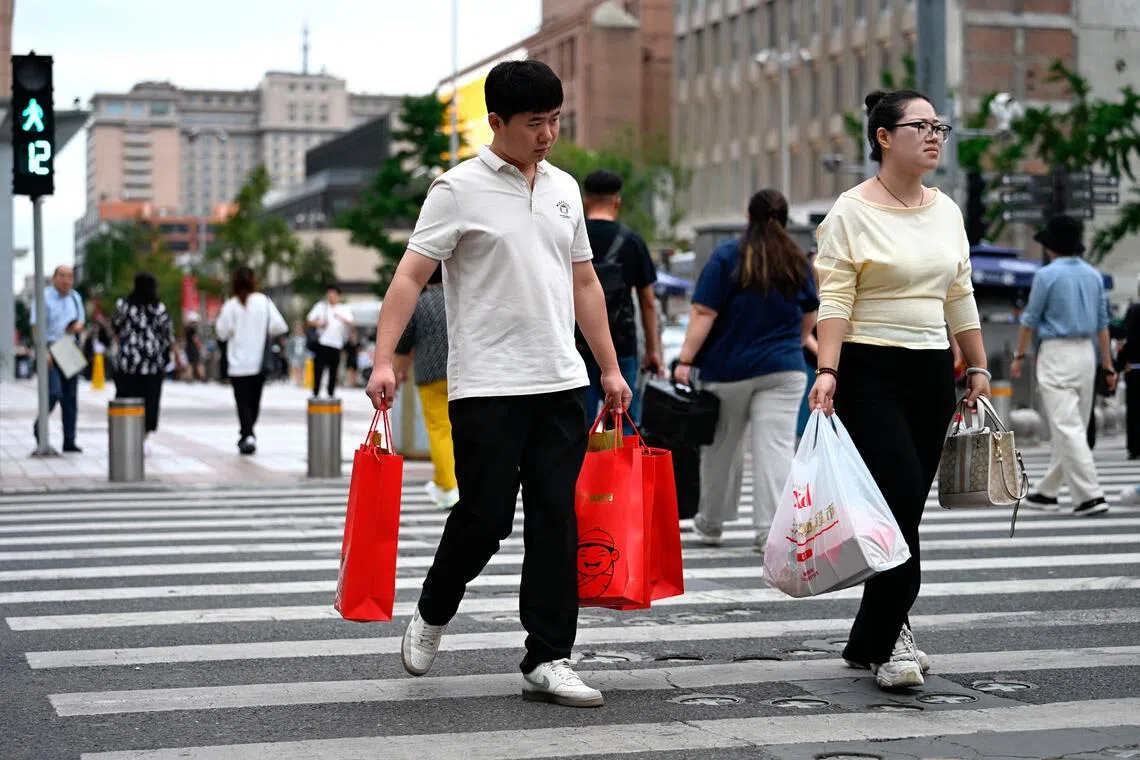China consumer prices unexpectedly rise on holiday demand
Sign up now: Get ST's newsletters delivered to your inbox

China’s consumer prices unexpectedly increased in October, as holidays during the month boosted travel, food and transport demand.
PHOTO: AFP
BEIJING – China’s consumer prices unexpectedly increased in October, as holidays during the month boosted travel, food and transport demand – a pick-up many economists saw as likely to be fleeting.
The consumer price index (CPI) rose 0.2 per cent from a year earlier, after a 0.3 per cent decline in September, according to data released by the National Bureau of Statistics on Nov 9. The median forecast of economists surveyed by Bloomberg was for a 0.1 per cent drop. China’s core CPI, which excludes volatile items such as food and energy, climbed 1.2 per cent.
Service costs also edged up 0.2 per cent in October and contributed to the rise in inflation, according to the statistics bureau. Factory-gate deflation eased, despite persisting for a 37th straight month.
“The broad-based price increases likely reflect seasonal demand around the Golden Week,” Goldman Sachs Group economists wrote in a note. “Its durability remains to be seen.”
Bloomberg Economics analyst Eric Zhu said: “Consumer prices swinging back to inflation reflect a holiday boost that will fade. In other words, deflationary pressures remain entrenched – and weaker growth in the fourth quarter means there’s little to change the trend.”
China has faced deflationary pressures in recent months, recording declines in prices for August and September. The country’s gross domestic product deflator – the broadest measure of prices – has been in decline for over two years, its longest streak since quarterly data began in 1993.
That deflationary spiral could be even deeper than what the official numbers show. A Bloomberg News analysis of almost 70 everyday products and services from multiple sources showed prices dropped more sharply than the headline CPI indicates, especially for goods that ordinary consumers buy.
Persistent deflation encourages consumers to delay purchases, increases the debt burden and reduces profit margins, risking a downward spiral of weaker spending and lower investment.
Breaking this cycle has become a top policy priority. Beijing has launched a so-called “anti-involution” campaign, an effort to stamp out the price wars that have plagued industries from electric vehicles to food delivery.
But progress has been limited, with the government concerned about the risk of job losses and weaker economic growth.
While China is on track to achieve its growth goal of about 5 per cent in 2025, the expansion of nominal gross domestic product has been slower because of falling prices.
The government has reduced its official target for consumer inflation to around 2 per cent for 2025, the lowest level in over two decades. Even so, price growth has been around zero or negative for much of 2025. BLOOMBERG


